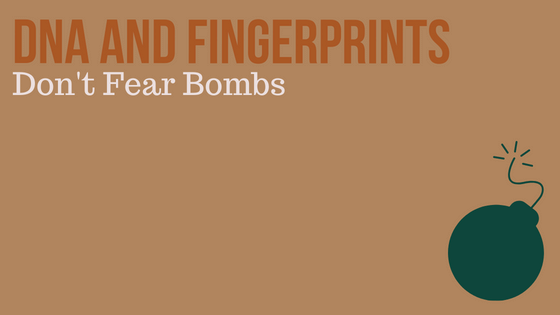Today’s guest blog is written by Dr. Gianluca Margiotta, Carabinieri Reparto Investigazioni Scientifiche di Parma
I work as a biologist/DNA analyst with my team leader Nicola Staiti in the scientific investigations department – biology unit in the Carabinieri in Parma, Italy (R.I.S. Carabinieri di Parma). In my department, we analyze samples coming from crime scenes from all of northern Italy. We are the main department of Carabinieri (law enforcement) for crime scene investigations for northern Italy, and we often go to crime scenes to analyze them, taking samples of interest that we later analyze in our laboratories.
In November 2019, in a countryside area in northern Italy, a violent explosion caused a building collapse and the death of three firemen. The team of crime scene experts that I was a part of found, among other evidences, two IEDs (improvised explosive device) under the ruins. We took these back to the laboratory, where we focused on one particular part of the IEDs: a clockwork mechanism connected by some electrical cables to a battery. After biological sampling, the device was processed in the fingerprint unit laboratory too.
The DNA profile recovered from the analyzed samples, aside from two fingerprints, matched the name of the suspect. The sensitivity and the excellent performance of the materials and methods used for DNA recovery, extraction, amplification and typing were a determining factor for getting a good profile from touch DNA sited on narrow surfaces and, most of all, exposed to harsh environmental conditions such as those caused by an explosion. In particular, the lesson I have learned, is that it is worth trying to recover DNA every time, even if there are surfaces not perfectly suitable and even if environmental conditions seem to be prohibitive: actual materials and kits used in forensic genetics could lead to surprising and unexpected results.
In my line of work, I am often involved in the biological analysis of crime cases. In this particular situation, the fact that there were three firemen who died for the explosion, gave me and my colleagues a further reason to make our work at best, with the aim to get justice done and to discover the individual responsible for this crime. I was proud of the results obtained and this was a human and professional satisfaction. Science, and in particular biology helping to achieve justice is the main boost for doing this work.
I will continue to do my job with the same passion I have had (and I have still now!) in these years. Events like ISHI are an excellent way to discover advances in forensic genetics, especially in countries different from yours, and to get in touch with other scientists that do the same job. Exchanging opinions and working protocols, learning from excellent speakers and experts, and simply talking about the ways to face in a different way various situations that happen in laboratories, means creating a very useful link/network for solving everyday working challenges and growing professionally. So I will exploit this opportunity ISHI gave me!
WOULD YOU LIKE TO SEE MORE ARTICLES LIKE THIS? SUBSCRIBE TO THE ISHI BLOG BELOW!
SUBSCRIBE NOW!


